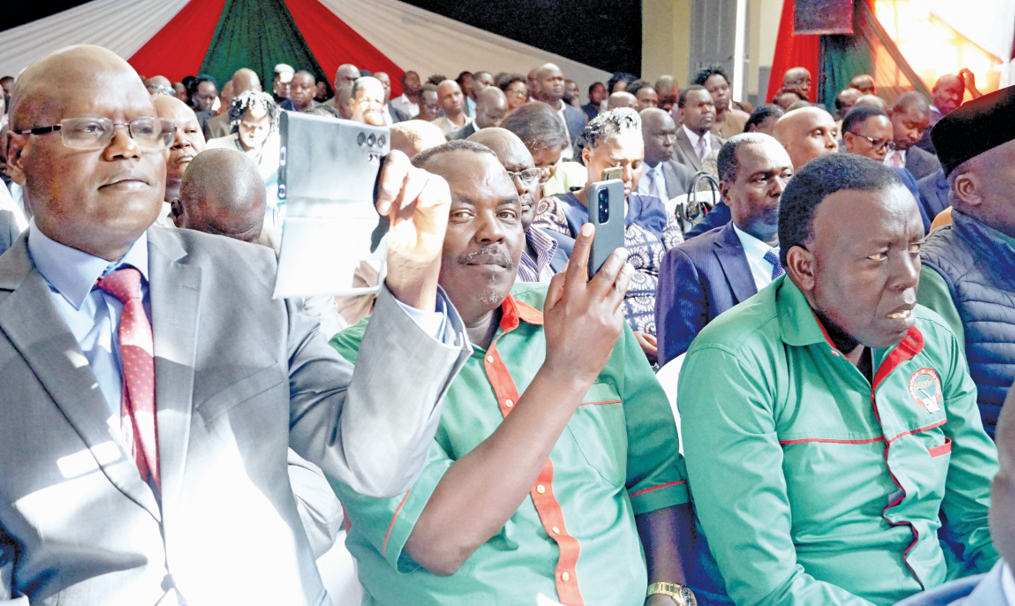New grading system to herald higher transition
By Irene.Githinji, January 9, 2024A new grading structure has been implemented in the 2023 Kenya Certificate of Secondary Education (KCSE) examination, which is expected to see a higher number of students transition to institutions of higher learning.
Education Cabinet Secretary, Ezekiel Machogu said yesterday it is clear from the new grading system that the Ministry is now focusing on ensuring that candidates have mandatory literacy (English or Kiswahili) and numeracy skills (mathematics) to enable them pursue their careers in TVET institutions, universities and colleges.
This year, some 201,133 students scored the university entry points of C+ (Plus) and above.
“In a departure from tradition, this is the first KCSE examination results to be released under a new grading structure that was implemented in the 2023 KCSE Examination. The reviewed grading system was approved by the Council as per Council Resolution No. 2/C 18th September/ 2023/1,” said the CS when he released the KCSE results in Eldoret.
Under the system, he said the overall grade at KCSE examination has considered Mathematics, the best performing language subject among English/Kiswahili/Kenyan Sign Language and the best performed five subjects.
He stated that the new reform measure will allow a larger number of students to pursue courses of their choice at the universities, Diploma and TVET training at Certificate and Artisan levels than was previously when the grading was more restrictive.
Arising from the change in the new grading system, therefore, the CS directed Kenya Universities and Colleges Central Placement Service (KUCCPS) and universities to align their 15 cluster points and entry requirements with the new reforms to avoid disadvantaging the candidates.
He also urged Kenya National Examination Council (KNEC) to complete their processes and handover the final results to KUCCPS to pave the way for the start of the placement process.
“I direct KUCCPS to mount a robust career awareness campaign among the 2023 KCSE candidates to ensure all students understand the new TVET and universities entry requirements under the Higher Education Funding Model that was launched last year,” the CS directed.
He also directed KUCCPS to immediately put in place measures to allow the 2023 KCSE candidates wishing to join TVET institutions to apply for their courses ahead of the March 2024 admissions.
KNEC CEO, Dr David Njengere had previously stated that the new grading structure is in line with Presidential Working Party on Education Reforms (PWPER), which stated the 8-4-4 education structure provided for exams that were primarily summative for certification and placement.
The working party said the grading system for KCSE considers seven subjects English, Kiswahili, Mathematics, two Science subjects and two other subjects, which disadvantage some learners whose best performing subject is not considered if not within the cluster.
English and Kiswahili measure the literacy level of a learner, while Mathematics and any Science subject evaluate the numeracy aspects of the learner. We have remained with the grading system for long, we have tried to massage it here and there and I am glad PWPER has seen that problem and recommended we look at our grading system,” Njengere previously said.
PWPER proposed that computation of KCSE mean score by KNEC be based on Mathematics, English or Kiswahili and five other best-performed subjects.“If we look at data, it will tell you clearly that our grading within the 8-4-4 system has a problem. When we administered the first KCSE exam under 8-4-4 in 1989, across the entire country only one learner got an A grade. Clearly, it is not possible in a whole country to say that only one child can get that distinction, there must be a problem. The following year, 1990, it was shocking since there was not a single child across the entire country who got an A and that was a problem with the grading system,” explained Njengere.
More Articles

